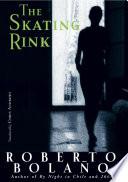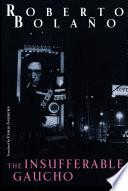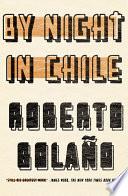“In some lost fold of the past, we wanted to be lions and we're no more than castrated cats”
Source: The Savage Detectives
Roberto Bolaño Ávalos was a Chilean novelist, short-story writer, poet and essayist. In 1999, Bolaño won the Rómulo Gallegos Prize for his novel Los detectives salvajes , and in 2008 he was posthumously awarded the National Book Critics Circle Award for Fiction for his novel 2666, which was described by board member Marcela Valdes as a "work so rich and dazzling that it will surely draw readers and scholars for ages". The New York Times described him as "the most significant Latin American literary voice of his generation". Wikipedia

“In some lost fold of the past, we wanted to be lions and we're no more than castrated cats”
Source: The Savage Detectives
2666: A Novel (2008)
La literatura es un vasto bosque y las obras maestras son los lagos, los árboles inmensos o extrañísimos, las elocuentes flores preciosas o las escondidas grutas, pero un bosque también está compuesto por árboles comunes y corrientes, por yerbazales, por charcos, por plantas parásitas, por hongos y por florecillas silvestres.
2666: A Novel (2008)
"Meeting with Enrique Lihn" (The New Yorker,December 22, 2008)
Context: Literature was a vast minefield occupied by enemies, except for a few classic authors (just a few), and every day I had to walk through that minefield, where any false move could be fatal, with only the poems of Archilochus to guide me. It’s like that for all young writers. There comes a time when you have no support, not even from friends, forget about mentors, and there’s no one to give you a hand; publication, prizes, and grants are reserved for the others, the ones who said “Yes, sir,” over and over, or those who praised the literary mandarins, a never-ending horde distinguished only by their aptitude for discipline and punishment — nothing escapes them and they forgive nothing.
Entre Paréntesis (2004) edited by Ignacio Echevarría, p. 223
“The Eye never said good-bye to anyone. I never said good-bye to anyone either.”
Mauricio ('The Eye') Silva
Last Evenings on Earth (2006)
Context: One day I heard that The Eye had left Mexico. I wasn't surprised that he hadn't said good-bye. The Eye never said good-bye to anyone. I never said good-bye to anyone either.
"Meeting with Enrique Lihn" (The New Yorker,December 22, 2008)
Context: Literature was a vast minefield occupied by enemies, except for a few classic authors (just a few), and every day I had to walk through that minefield, where any false move could be fatal, with only the poems of Archilochus to guide me. It’s like that for all young writers. There comes a time when you have no support, not even from friends, forget about mentors, and there’s no one to give you a hand; publication, prizes, and grants are reserved for the others, the ones who said “Yes, sir,” over and over, or those who praised the literary mandarins, a never-ending horde distinguished only by their aptitude for discipline and punishment — nothing escapes them and they forgive nothing.
“If you're going to say what you want to say, you're going to hear what you don't want to hear.”
Source: The Insufferable Gaucho
Dentist
Source: Last Evenings on Earth (2006)
“we interpret life at moments of the deepest desperation.”
Source: The Savage Detectives
“I'm an educated man, the prisons I know are subtle ones.”
Source: The Savage Detectives
Dentist
Last Evenings on Earth (2006)
Variant: There is a time for reciting poems and a time for fists.
Source: The Savage Detectives
Source: The Savage Detectives
His experience of being imprisoned during the regime of Augusto Pinochet, as depicted in "Dance Card", p. 215
Last Evenings on Earth (2006)
As quoted in Mining Mirror Vol. 19 (2006), p. 3
2666: A Novel (2008)
Mauricio ('The Eye') Silva
Last Evenings on Earth (2006)
Mauricio ('The Eye') Silva
Last Evenings on Earth (2006)
Between Parentheses. Essays, Articles, and Speeches, 1998–2003. ed. Ignacio Echevarría, trans. Natasha Wimmer (New York: New Directions, 2011 [2004]). 358.
Variant: Alternative translation: "Those who have power—even for a short time—know nothing about literature; they are solely interested in power. I can be a clown to my readers, if I damn well please, but never to the powerful." Interview with Mónica Maristain for Playboy (Mexican edition), "The Last Interview" (2003), 102, in: The Last Interview. trans. Sybil Perez (New York: Mellville House, 2009). 93-123



